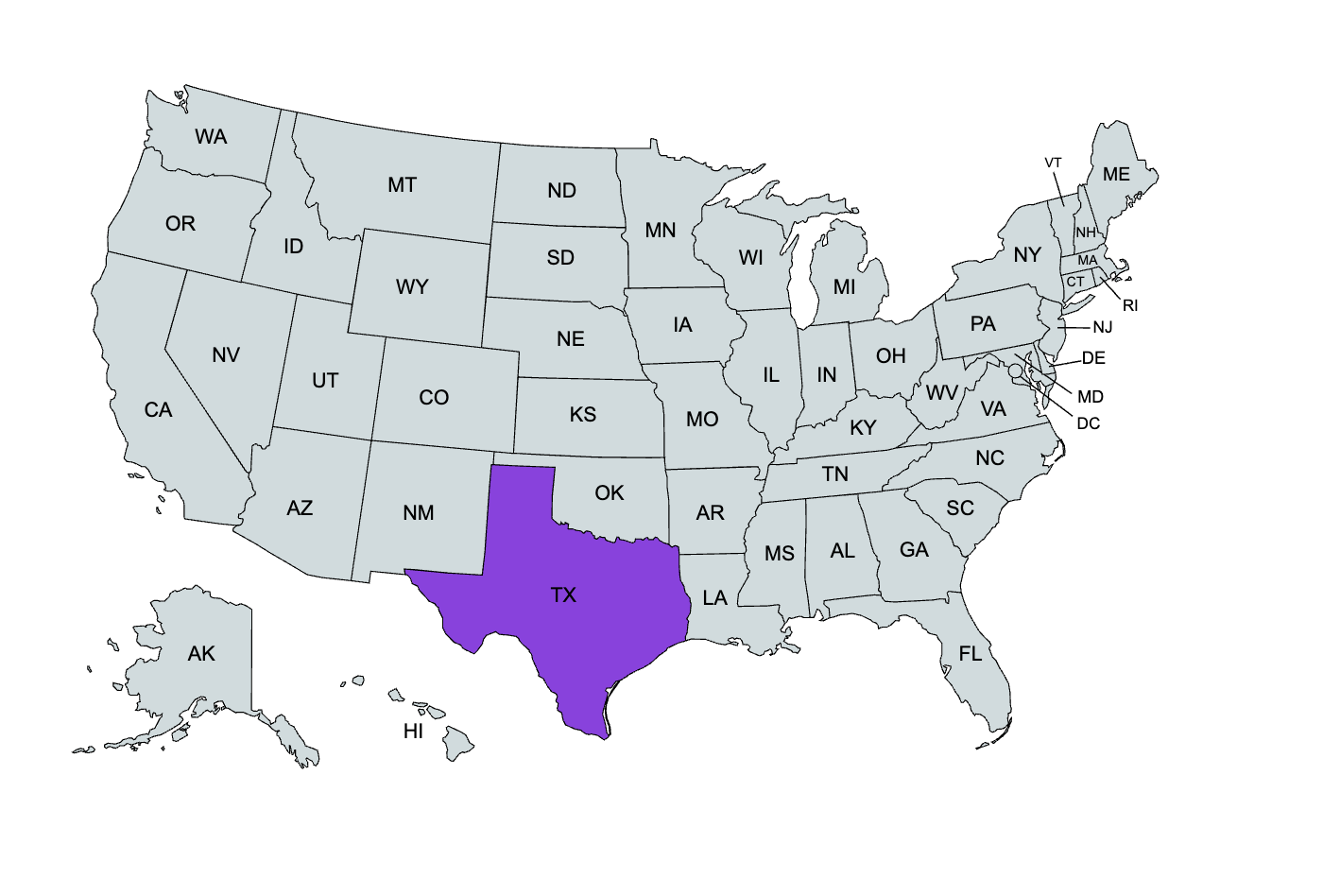Texas Paycheck Calculator: Calculate Your Net Pay
If you’re wondering, “How do I figure out how much money I take home in Texas” we’ve got you covered.
Use our simple paycheck calculator to estimate your net or “take home” pay after taxes, as an hourly or salaried employee in Texas.
Paycheck Calculator
Get ahead with our free resources:
How Does the Paycheck Calculator Work?
Simply enter your wage information and pay frequency, and our calculator will handle the rest. Once you’ve filled in all the information, click the “Calculate Tax” button, and the calculator will provide an estimate of your net or “take home” pay for the specified pay period. Whether you're new to the Lone Star State's job market or a long-time resident, our calculator is here to make your financial planning easier.
Overview of Texas Taxes

Texas has a distinct tax landscape that differs from many other states, offering several benefits and considerations for residents and workers. Understanding the key elements of Texas taxation can significantly influence your financial planning. Here's what you need to know:
- No State Income Tax: One of the most notable features of Texas is the absence of a state income tax on salaries and wages. This often results in higher take-home pay for employees.
- Sales Tax: Texas does impose a state sales tax, which can vary when local taxes are included. It's essential to account for this when budgeting for day-to-day expenses.
- Property Taxes: Texas tends to have relatively high property taxes, something to consider if you own or are planning to buy a home in the state.
- Local Taxes: While there is no local income tax, some Texas municipalities may impose additional taxes or fees for specific services, so it's wise to be aware of any local levies.
- Other Taxes and Fees: Texas has various other taxes such as fuel taxes, alcohol taxes, and cigarette taxes. These are typically consumption-based and will depend on your purchasing habits.
Median Household Income in Texas
Salary in each state is typically based on the cost of living. While salaries vary widely based on position, the median household income in your state can give you a glimpse at the average salary a household is earning in your region.
The median household income in the Lone Star State has generally been increasing over the years, with some fluctuations. For instance, there was a noticeable decrease in median household income from 2020 to 2021. In 2020, it was $68,404, but it dropped to $67,404 in 2021.
Median household income can be influenced by various factors, including economic policies, industry trends, and regional economic disparities. For the most up-to-date and detailed analysis, it's recommended to refer to the latest reports and data from authoritative sources like the U.S. Census Bureau or the Bureau of Labor Statistics.
Tips for Maximizing Your Paycheck
Here are some tips to help you maximize your paycheck:
- Take Advantage of No State Income Tax: Texas is one of the few states that doesn't impose a state income tax on wages and salaries. Ensure you're maximizing your federal tax exemptions to optimize your take-home pay.
- Contribute to Tax-Advantaged Accounts: Since there is no state income tax, focus on reducing your federal taxable income. Contributions to retirement accounts like 401(k)s or IRAs, as well as Health Savings Accounts (HSAs), can be tax-deductible.
- Evaluate Property Taxes: If you're considering purchasing a home, research property tax rates in various neighborhoods. Texas has relatively high property taxes, so it could significantly impact your monthly budget.
- Scrutinize Deductions and Benefits: Examine your pay stub carefully to ensure that only necessary deductions are made and that you're taking full advantage of any employer-sponsored benefits like healthcare or retirement contributions.
- Consider Additional Income Streams: Given the state's generally favorable tax climate, additional income from freelance work, part-time jobs, or bonuses may have less tax liability compared to other states.
- Consult a Tax Professional: Tax laws can be complex and subject to change. A qualified tax advisor can help you navigate the complexities of federal, state, and local taxes to maximize your income.
